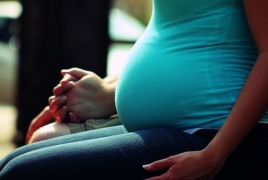
As many as two-thirds of young, pregnant women may have a mental health disorder, according to UK research which found “shockingly high levels” among under 25s, The Independent reports.
Academics from King’s College London found 67 per cent of women aged 16 to 24 met the criteria for a mental health condition, including anxiety, depression and post-traumatic stress disorder. This compared to around one in five women 25 and over.
The researchers said their “alarming” findings come amid increasing recognition of rising unmet mental health needs among young people.
While many services target support at teenage pregnancies they said their study shows significant numbers of vulnerable women in their early twenties who maternity services must be resourced to identify and support.
“We’ve shown a shockingly high prevalence of mental disorders in young pregnant women aged 16 to 24 years in London compared with women aged 25 years or older,” Dr Georgia Lockwood lead author of the study published in British Journal of Psychiatry Open.
While there has been widespread research on mental health after giving birth – particularly postnatal depression – Dr Lockwood said there was a broad range of issues affecting young women in early pregnancy “with anxiety disorders being particularly prevalent".
For their research the team from the Institute of Psychiatry, Psychology & Neuroscience at King’s recruited 575 women during their first antenatal check-up with with one central London maternity service.
All the participants were assessed using a “gold-standard” psychiatric interview used to diagnose patients in the NHS.
Around one in 10 of the women studied were under 25 (57 in all) and they were more likely to have other characteristics that make them vulnerable, including being single, unemployed, lacking fixed accommodation and having had an unplanned pregnancy.
Nearly two out five had some lifetime experience of abuse, with 20.5 per cent reporting that had experienced sexual abuse, and 19 .5 per cent having had an abusive partner – though this is likely to be under reported.

